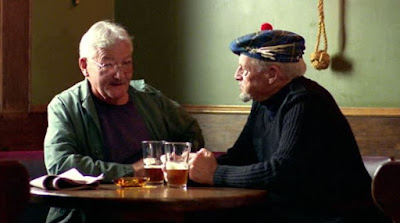 |
| “And when they had bound him, they led him away, and delivered him to Pontius Pilate the governor.” – Matthew 27:2 |
“THIS COURT OF INQUIRY will come to order!”
The Presiding Officer surveyed the room. The tables arranged to form a hollow square. The soldiers in their dress uniforms. The evidence folders placed neatly before them. The mood, he noted, was unusually sombre. The death of Palestinian militants while in the custody of the Israeli Defence Force was far from uncommon. Escapes from custody, however, were rare – and always investigated.
The bare facts of the incident were relayed without embroidery by the young Major who had overseen the investigation.
“Isa Al-Salām was arrested by the Palestinian Authority Police in a private garden in East Jerusalem. There was a brief scuffle between Al-Salām’s followers and the arresting officers which the prisoner, himself, brought to an end. At PA Police HQ, Al-Salām was questioned by several high-ranking Fatah officials. His answers led these officials to send him to the Commander of the IDF in East Jerusalem.”
“Why did they do that, do you suppose?”, the Presiding Officer interjected.
“The Fatah officials believed that Al-Salām’s ideas posed a profound threat to peace and good order across the whole West Bank. Not just to their own authority, but to ours.”
“How so?”
“The Isa Movement has already attracted thousands of followers. The man prophesises that the whole Israeli State, and the Palestinian Authority along with it, will soon crumble to dust. He preaches the imminence of the Kingdom of Heaven, where, all harms being healed, love and peace shall reign, and where Jew and Arab will be reconciled. The healing of harms part he has already begun. People repeat wild tales about him curing the sick and raising the dead. His followers call him the Son of God.”
“That’s a dangerous title in these lands. How did the Commander respond?”
“He questioned the prisoner in private, Sir, and emerged from the interrogation visibly shaken. Conferring with the Fatah officials, the Commander issued orders for Al-Salām to be held incommunicado at IDF East Jerusalem HQ. He then sent for his senior intelligence officer to join him in his office. The two men conferred together for more than an hour.”
“And it was shortly after this meeting that Al-Salām was shot and killed while attempting to escape?”
“Yes, Sir. That is correct.”
“How very convenient.”
“Subsequent inquiries indicated that the representatives of the Palestinian Authority thought it best if Al-Salām be eliminated by the IDF. They were fearful that should he die at their hands then the reaction of his followers would undermine what little authority it still possesses.”
“And the Commander agreed to this?”
“In his letter of resignation he confirms that: rather than have this individual alive in a city, and a country, sacred to at least three world religions; a man of astonishing presence and charisma, who, once taken-up by the international media, was quite capable of throwing the entire planet into chaos; it would be better if he died while attempting to escape.”
“And he did die, Major. There is no doubt surrounding his physical condition?”
“None whatsoever, Sir. The Medical Officer confirmed his demise at 12:01 Hours, Friday afternoon.”
“The same time as the earthquake?”
“Why, yes, Sir. I suppose it would have been about that time.”
“And yet, Major, this dead man somehow contrived to get up and walk out, completely unseen, from the Headquarters of the IDF in East Jerusalem?”
“His body was taken to the East Jerusalem Morgue. The door to the storage room was locked and armed guards posted with strict orders to admit no one without a signed order from the Commander.”
“But …”
“But, on Sunday morning some of Al-Salām’s followers arrived to claim the body. They came with a signed order from the Commander, so the soldiers on guard unlocked the door and led them to where Al-Salām’s body had been laid.”
“And the body was gone?”
“Yes, Sir. It was gone.”
“The guards had the key. At some point between Friday and Sunday could not the soldiers on duty have admitted Al-Salām’s followers to the Morgue and let them carry off the body?”
“The obvious explanation, Sir. But the men detailed to guard the body all swore that they saw no one. What’s more, the CCTV record bears out their stories.”
“So, Major. Isa Al-Salām, and his message, lives?”
“Yes, Sir. He is risen.”
This short story was originally published in The Otago Daily Times and The Greymouth Star during Easter 2024.










